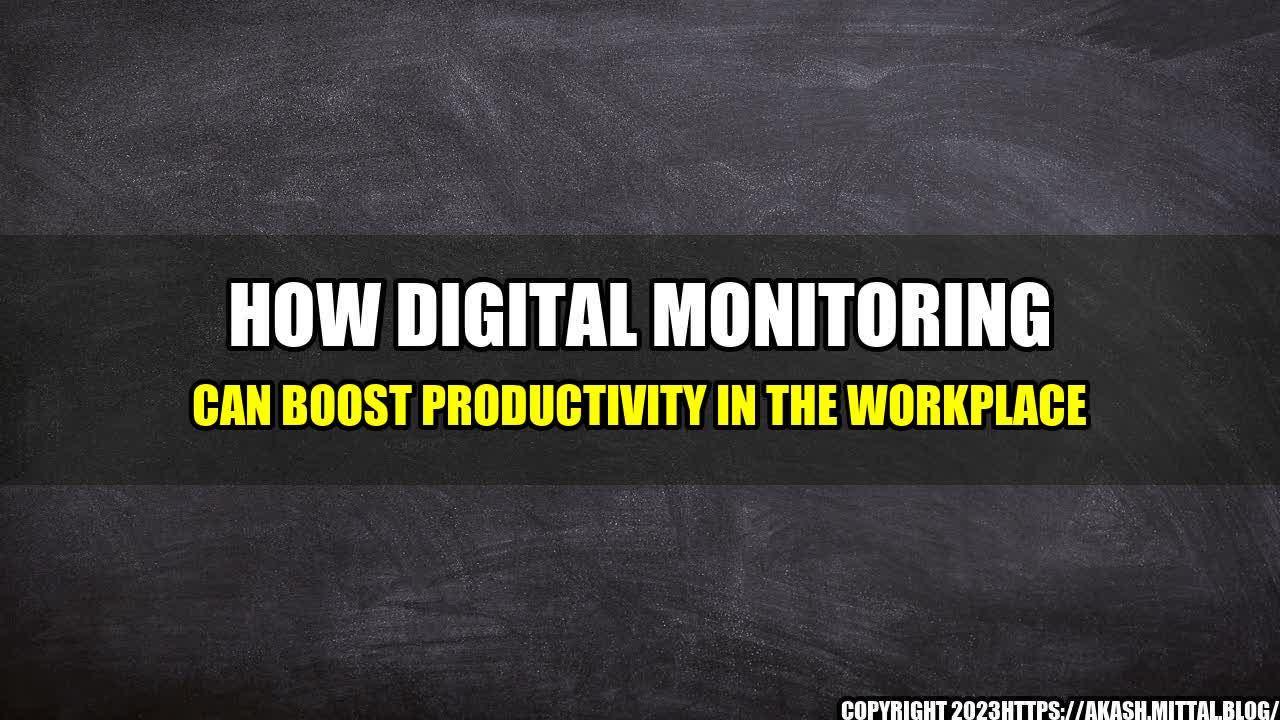Imagine you're the CEO of a startup company with a team made up of a few employees. They work hard every day, but you've noticed that productivity has been declining lately. You want to find a way to motivate your team and boost their efficiency without overworking them or micromanaging their every move. What do you do?
According to a recent survey by the HR consulting firm Robert Half, the answer might be digital monitoring. This approach involves using software or other tools to track employees' work habits in real time, providing insights into how they spend their time and where they may be struggling. While some workers may be wary of this type of monitoring, the majority of those surveyed actually welcomed the idea. Here's why.
One of the key benefits of digital monitoring is that it can make work processes more visible and transparent. When employees know that their work is being tracked, they may be more likely to stay focused and productive throughout the day. This can lead to tangible improvements in output and efficiency. For example:
- A marketing team tracked their social media interactions using a monitoring tool, which allowed them to see which posts were most popular and which strategies were falling flat. With this information, they were able to adjust their approach and increase engagement by more than 50%.
- A call center implemented a monitoring system that measured metrics such as call volume and resolution time. With this data, they were able to identify areas where employees needed additional training and coaching, resulting in a 20% increase in customer satisfaction ratings.
- A software development team began using a productivity tracking tool that monitored coding activity and flagged potential issues such as bugs or errors. By catching these problems early, they were able to reduce the amount of time spent on debugging by 30%.
The Benefits of Digital Monitoring
Based on the results of the Robert Half survey, it's clear that many workers see digital monitoring as a positive development. But what benefits do they see in this approach?
Improved Accountability
With digital monitoring, employees are more accountable for their work. When they know that their productivity is being measured, they may be more likely to stay on task and avoid distractions. This can lead to a greater sense of responsibility and ownership over their work, which can lead to overall improvements in productivity.
Less Micromanagement
One of the fears many workers have about digital monitoring is that it might be used to micromanage their every move. However, according to the Robert Half survey, most employees don't see it this way. In fact, over 70% of those surveyed said that digital monitoring would help their managers trust them more and reduce the need for constant follow-up.
Better Performance Feedback
Finally, digital monitoring can provide employees with more accurate and timely feedback on their performance. When managers have access to real-time data on how employees are spending their time, they can provide more specific feedback and guidance on how to improve. This can help employees to grow and develop their skills, which can lead to greater job satisfaction and engagement.
Practical Tips for Implementing Digital Monitoring
If you're considering implementing digital monitoring in your workplace, there are a few things to keep in mind:
- Be transparent: It's important to let employees know what kind of monitoring will be in place, how the data will be used, and how it will benefit them.
- Set clear expectations: Make it clear what you hope to achieve with digital monitoring and how it will impact employees' day-to-day work.
- Offer training and support: Ensure that employees understand how to use any monitoring tools that are implemented and provide them with any necessary training or support to use them effectively.
In Conclusion
While some workers may be wary of digital monitoring, the reality is that it can be a powerful tool for improving productivity and efficiency in the workplace. By providing valuable insights into how employees work, managers can help their teams to stay focused, stay accountable, and stay motivated. With the right approach and the right tools in place, digital monitoring can be a win-win for everyone involved.

Curated by Team Akash.Mittal.Blog
Share on Twitter Share on LinkedIn